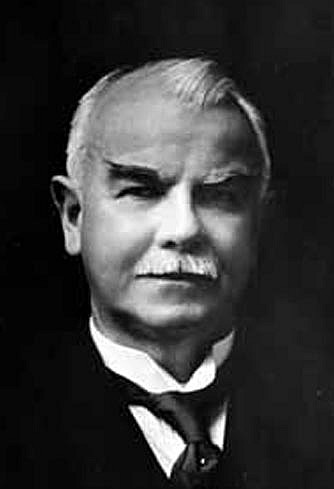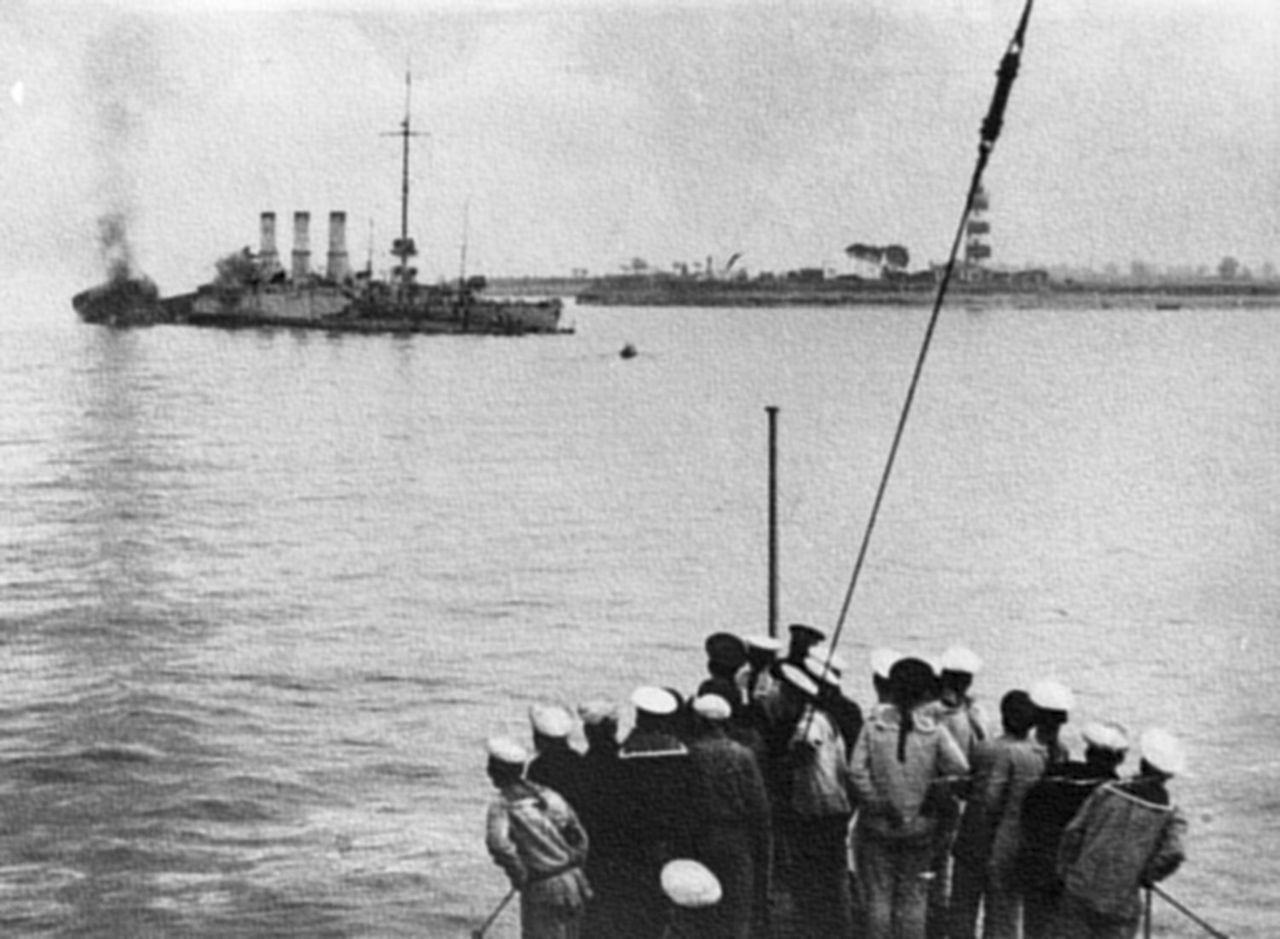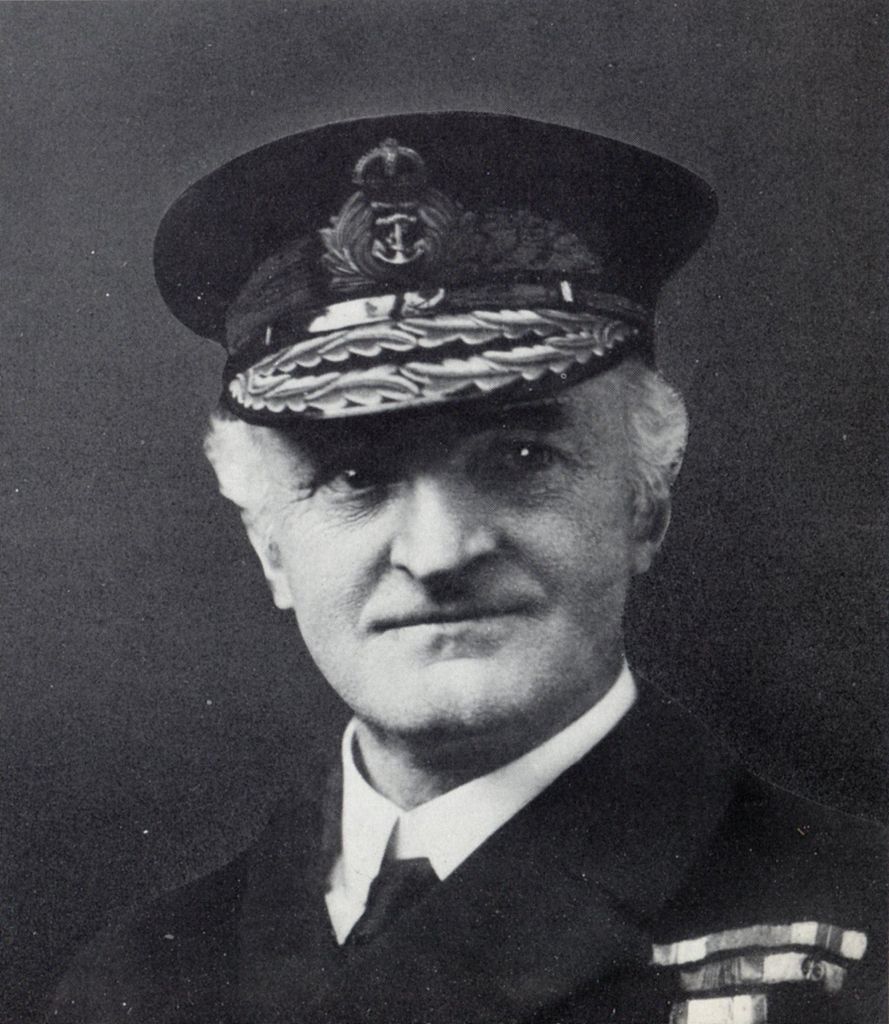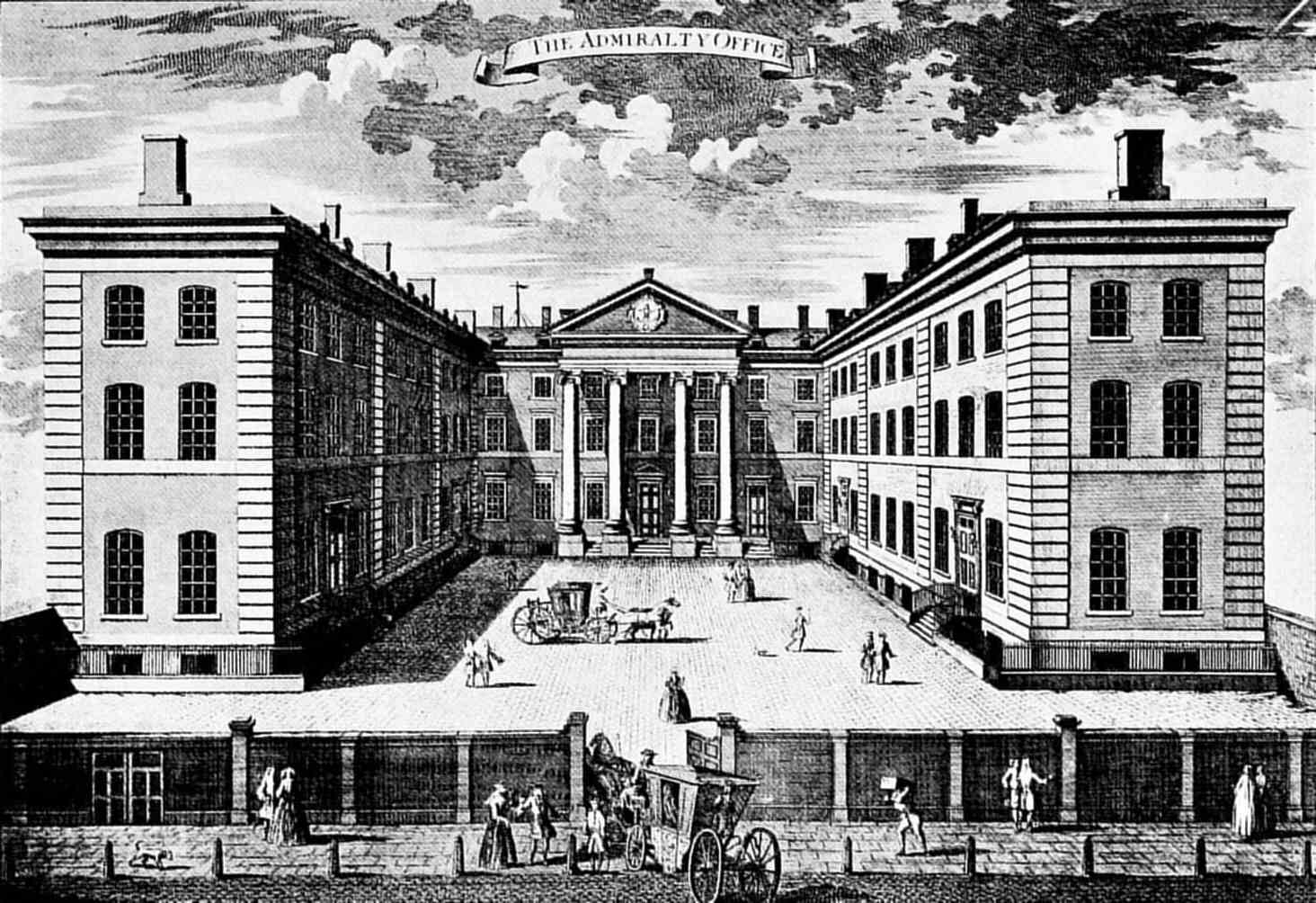British successes against German ciphers in WWII are reasonably well-known, but far less known was the work done by their predecessors during the First World War against German naval ciphers. This group, known as Room 40 after the room it was assigned at the Admiralty, started from nothing at the beginning of the war and thanks to a combination of skill and an unreasonable amount of luck, soon played a vital role in the war at sea.

Alfred Ewing
When war broke out, the Admiralty acted quickly to cut the undersea cables linking Germany to the rest of the world, forcing Germany to rely on interceptable radio messages. But no organization was in place to intercept said radio messages, and the British were forced to rely on a combination of amateur radio operators, the Post Office and the Marconi Company for this function. Nor was analysis in any better shape, and the task of setting up an organization fell to physicist Alfred Ewing, the Director of Naval Education. He, with the help of various professors from the Royal Naval Colleges, began to set up a team to deal with the flood of traffic.
Amazingly, the first months of the war saw the British acquire copies of all three of Germany's major naval codebooks. The first, known as HVB, was primarily used for communication with merchant ships, although it was also used by small vessels like minesweepers, as well as U-boats and Zeppelins. It was captured in August by the Australians, who got aboard the German-Australian merchant ship Hobart posing as quarantine inspectors, and captured the ship's captain as he attempted to dispose of his secret papers. But it took the Australians some time to realize what they had, and more time for the books to reach London. By the time they got there in late October, the second code had already reached Room 40.

Magdeburg aground
This one had come from the cruiser Magdeburg, which ran aground during a sweep of the entrance of the Gulf of Finland in late August. The Russians quickly turned up, driving off the destroyer that had come to her aid, and in the confusion, her codebooks and charts survived. One of these, for the system known as SKM, used by the larger units of the fleet, was given to the British, and promptly turned over to Room 40. The third and last code, known as VB, was usually used for diplomatic messages, or for communication by flag officers, and its recovery was the most miraculous of all. German torpedo boat S119 was sunk during a mid-October clash with a British cruiser-destroyer force off the Dutch coast, and her Captain, in accordance with procedure, jettisoned his secret papers in a lead-lined chest. Astonishingly, the chest was snagged by a British trawler, still going about its normal business, on November 30th. Apparently, this code was aboard to allow the torpedo boats to talk to the Army in Flanders, but it would prove most useful for reading the traffic with Germany's naval attaches abroad.
Just getting the codebooks wasn't quite enough, because, as indicated by the names, they were codes, systems for turning a message from a series of words and phrases into fixed-length groups of letters or numbers, which could then be transmitted. Of course, a sufficiently clever opponent could eventually work out what each code group stood for, so except for some simple messages like weather reports, the Germans enciphered the resulting code groups with a substitution cipher, which was quickly broken by C. J. E. Rotter, the Naval Intelligence Division's German expert. Rotter's work prompted a major expansion of the codebreaking staff, and their first proper home, the titular Room 40. Unfortunately, Churchill, eager to protect the source of the new information, ordered that information from the decrypts be passed only to himself, Fisher, and two other very busy officers, greatly limiting its utility compared to the procedures adopted during WWII. They did consent to adding a few regular naval officers to its staff to make sure that someone with naval experience could analyze the raw messages and comment on them, this duty first falling to Commander Herbert Hope.

"Blinker" Hall
Another character who played a large part in Room 40's story was Captain Reginald "Blinker" Hall, so named for his constant blinking. He had been captain of the battlecruiser Queen Mary at the outbreak of war, and had made her one of the finest units in the fleet, but his health had failed in October 1914, and he had been brought ashore and assigned to the post of Director of the Intelligence Division, a job he took to with remarkable ability, coordinating a large part of Britain's secret war with Germany.1 Politics inside the Admiralty meant that Room 40 was out of his direct control until 1917, greatly limiting its effectiveness.
Room 40's first success came in mid-December 1914, when the Germans, following their successful raid on Yarmouth, attacked Hartlepool, on the north coast of England. The Germans tended to use wireless to pass messages to their fleets in harbor, and Room 40 picked up information on the German sortie, giving Jellicoe and Beatty enough time to get their ships in perfect position to trap the bombarding force. Unfortunately, despite Beatty's ships being perfectly located to intercept Hipper, visibility in the North Sea failed, and only brief contact was made before the Germans slipped by. More success came a month later at the Battle of Dogger Bank, when Room 40's work allowed the British to set an almost perfect trap during a sweep by the German battlecruisers. Unfortunately, the key word was "almost", and Hipper again escaped despite heavy damage to Seydlitz and the loss of the semi-battlecruiser Blucher.

The old Admiralty Building, where Room 40 was located
Room 40's work continued throughout 1915, although the limitations of its information were quickly revealed. Orders to minesweepers and navigational aids around Wilhelmshaven could indicate if the High Seas Fleet was going to leave port, but they gave no indication what it was going to do, and for the rest of the year, it only sailed for training or to cover operations inside Heligoland Bight itself. But this wasn't clear to the British, and Jellicoe had to sortie every time these indications were received. Radio intercepts were also joined by the creation of a direction-finding network, although it was only useful against U-boats thanks to the lack of activity by the German surface fleet. Throughout 1915, Room 40 continued to expand, largely thanks to Hall's efforts, and it also took responsibility for intercepting diplomatic communications by a combination of stealing letters and radio intercepts, both from Britain and ships stationed near German colonies. This was primarily because Britain had no other codebreaking organization besides the Army's equivalent, and Room 40's efforts would pay dividends later in the war.
Room 40 would also make possible the greatest naval battle of the war, which we will talk about next time.
1 While it doesn't really fit in the narrative, I ran across a story while researching that was too good not to share. Hall was incensed when a judge gave a German spy a light sentence on the grounds that he had only passed the location of British factories, which the judge considered to be of no military importance. Hall sent a report to Germany in the spy's name, giving the judge's country house as the location of a factory, and subsequently found himself at a dinner seated next to the same judge, who was bemoaning the destruction of his house by zeppelins. The story comes from Hall himself, and the lack of accuracy of the zeppelins makes it doubtful. ⇑

Comments
AdmiraltyofficeWhitehall1760D_Cunego.jpg|The
Interesting way to spell "the".
Ack. Forgot the image header.
Does anyone have an idea of how much work it took to make these encryption systems at the time?
Going "bro just change your password lmao" is anachronistic since it obviously wasn't that easy, but how much work would it have been to change codes regularly?
Key management without public key crypto is a serious pain and they certainly didn't have RSA back then.
To change passwords regularly you'd need to distribute new codebooks regularly and avoid having your enemy intercept said codebooks.
Distributing new codebooks varies in difficulty from "relatively easy" to "nigh on impossible" depending on the target audience.
The hard end of the scale is for ships that were stationed overseas when war broke out, both naval vessels and merchantmen. You need to figure out where they're going to be and smuggle new codebooks past the Entente blockade somehow without the British intercepting any of them. Likewise for diplomatic stations overseas.
The easier end of the scale is major warships stationed in Wilhelmshaven. You've got a limited number of ships, all stationed together in friendly territory. Theoretically, you could print up new codebooks every morning and deliver them like newspapers to the ships in port. The utility of this would be limited, though, since the ships would only be able to use these codebooks to talk to one another: in port that's almost useless since there's plenty of other ways to talk securely (e.g. walking over to the next pier or hopping on a motor launch and talking face to face). And at sea, you probably want to use signal flags or semaphore most for the time anyway because those don't give away your location to listeners over the horizon the way even a coded radio transmission does. The main use would be to allow detached squadrons to communicate with one another.
I remember the Jutland series making the point that the British knew more or less what was coming because of the Room 40 decrypts, but I'm not sure who those particular decrypted messages were between (Wilhelmshaven and Berlin? And if so, why not use a wired telegraph or a physical letter hand-carried on a train by a junior officer?). But I expect Bean will get to that in a later installment : )
Changing a codebook would be a lot of work. Even leaving aside the distribution challenges, this is the early 1900s, so you're having to do everything by hand and double-check to make sure there aren't typos. They did try to encipher as well, and those could be changed more regularly, but the encryption wasn't strong enough to withstand Room 40's efforts for very long.